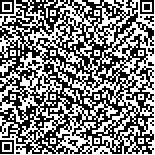|
| 新辅助免疫联合化疗或放化疗对局部晚期食管鳞癌术后并发症的影响 |
| Effect of Neoadjuvant Immunotherapy Combined with Chemotherapy or Chemoradiotherapy on Postoperative Complications in Locally Advanced Esophageal Squamous Cell Carcinoma |
| 投稿时间:2025-02-26 修订日期:2025-03-25 |
| DOI: |
|
 |
| 中文关键词: 局部晚期食管鳞癌 新辅助免疫治疗 食管癌根治性切除术 术后并发症 |
| 英文关键词:Locally advanced esophageal squamous cell carcinoma Neoadjuvant immunotherapy Esophagectomy Postoperative complications |
| 基金项目:国家自然科学基金(82202890); 北京生命绿洲公益服务中心-肿瘤领域科研基金项目(BH004506) |
|
| 摘要点击次数: 22 |
| 全文下载次数: 0 |
| 中文摘要: |
| [目的] 局部晚期食管鳞状细胞癌(locally advanced esophageal squamous cell carcinoma, LA-ESCC)患者接受免疫治疗联合新辅助化疗(neoadjuvant immunotherapy combined with chemotherapy, nICT)或放化疗(neoadjuvant immunotherapy combined with chemoradiotherapy, nICRT)是一种有前景的治疗方案。本研究旨在比较直接接受手术和接受nICT或nICRT后进行手术的患者之间的术后并发症差异。
[方法] 回顾性收集2020年1月至2022年1月于江苏省肿瘤医院接受食管癌根治性切除术的患者。通过1:1:1倾向性评分匹配(propensity score matching, PSM)消除组间基线特征差异后,直接手术组、nICT组和nICRT组各有87例患者纳入分析。术后并发症根据食管癌并发症共识小组(esophageal cancer complications consensus group, ECCG)标准进行系统分类和评估。
[结果] nICT组和nICRT组需要干预的心力衰竭(8.0% vs 13.8% vs 3.4%)以及肝功能异常(34.5% vs 47.1% vs 28.7%,)的发生率均高于直接手术组,其中nICRT组与直接手术组的差异具有统计学意义(P<0.05)。其他各系统并发症发生率在三组间无显著差异(P>0.05)。与直接手术组(244±58min)相比,nICT组(263±61min)和nICRT组(375±68min)的手术时间显著延长(P<0.001)。nICT组和nICRT组术中血管活性药物的使用率显著高于直接手术组(48.3% vs 64.4% vs 32.2%, P<0.001),且nICRT组血管活性药物的使用率较nICT组显著增加(P<0.05)。nICT组术中输血的患者比例较nICRT组更高(9.2% vs 0.0%, P<0.05)。此外,nICRT组术中尿量(P<0.001)和住院费用(P=0.026)均显著高于其他组。新辅助治疗期间,nICRT组较nICT组更易出现白细胞减少(86.2% vs 79.3%)、贫血(85.1% vs 75.9%)及粒细胞减少(75.9% vs 72.4%),但差异未达统计学意义(P>0.05);两组患者均未观察到免疫相关不良事件(irAEs)。
[结论] nICT或nICRT在LA-ESCC患者围手术期的总体安全性良好,但需关注nICRT组心力衰竭、肝功能异常增加的风险。 |
| 英文摘要: |
| [Objective]The combination of immunotherapy with neoadjuvant chemotherapy (nICT) or chemoradiotherapy (nICRT) represents a promising therapeutic strategy for patients with locally advanced esophageal squamous cell carcinoma (LA-ESCC). This study aimed to compare postoperative complications between patients who underwent direct esophagectomy and those who received nICT or nICRT followed by esophagectomy.
[Methods] A retrospective analysis was conducted on patients who underwent esophagectomy at Jiangsu Cancer Hospital from January 2020 to January 2022. After 1:1:1 propensity score matching (PSM) was performed to balance baseline characteristics across groups, 87 matched patients were included in each of the direct surgery group, nICT group, and nICRT group. Postoperative complications were systematically classified and evaluated according to the criteria established by the Esophageal Cancer Complications Consensus Group (ECCG).
[Results] The nICT and nICRT groups demonstrated higher rates of clinically significant heart failure (8.0% vs 13.8% vs 3.4%) and hepatic dysfunction (34.5% vs 47.1% vs 28.7%) compared to the direct surgery group, with statistically significant differences observed between the nICRT and direct surgery groups (P<0.05). No significant intergroup differences were detected in other systemic complications (P>0.05). Both neoadjuvant treatment groups exhibited prolonged operative durations versus the direct surgery group (263±61 vs 375±68 vs 244±58 minutes; P<0.001). Intraoperative vasoactive agent utilization was significantly higher in the nICT (48.3%) and nICRT (64.4%) groups compared to the direct surgery group (32.2%, P<0.001), with nICRT requiring more frequent vasopressor support than nICT (P<0.05). Transfusion rates differed between nICT (9.2%) and nICRT (0.0%, P<0.05). Furthermore, the nICRT group showed significantly increased intraoperative urine output (P<0.001) and hospitalization costs (P=0.026) versus other groups. During neoadjuvant therapy, hematologic toxicities including leukopenia (86.2% vs 79.3%), anemia (85.1% vs 75.9%), and neutropenia (75.9% vs 72.4%) were more prevalent in nICRT versus nICT, though differences lacked statistical significance (P>0.05). No immune-related adverse events (irAEs) occurred in either neoadjuvant treatment cohort.
[Conclusion] Both nICT and nICRT demonstrate acceptable perioperative safety profiles in LA-ESCC patients. However, the elevated risks of heart failure and liver dysfunction in the nICRT group warrant heightened clinical vigilance. |
|
在线阅读
查看/发表评论 下载PDF阅读器 |
|
|
|